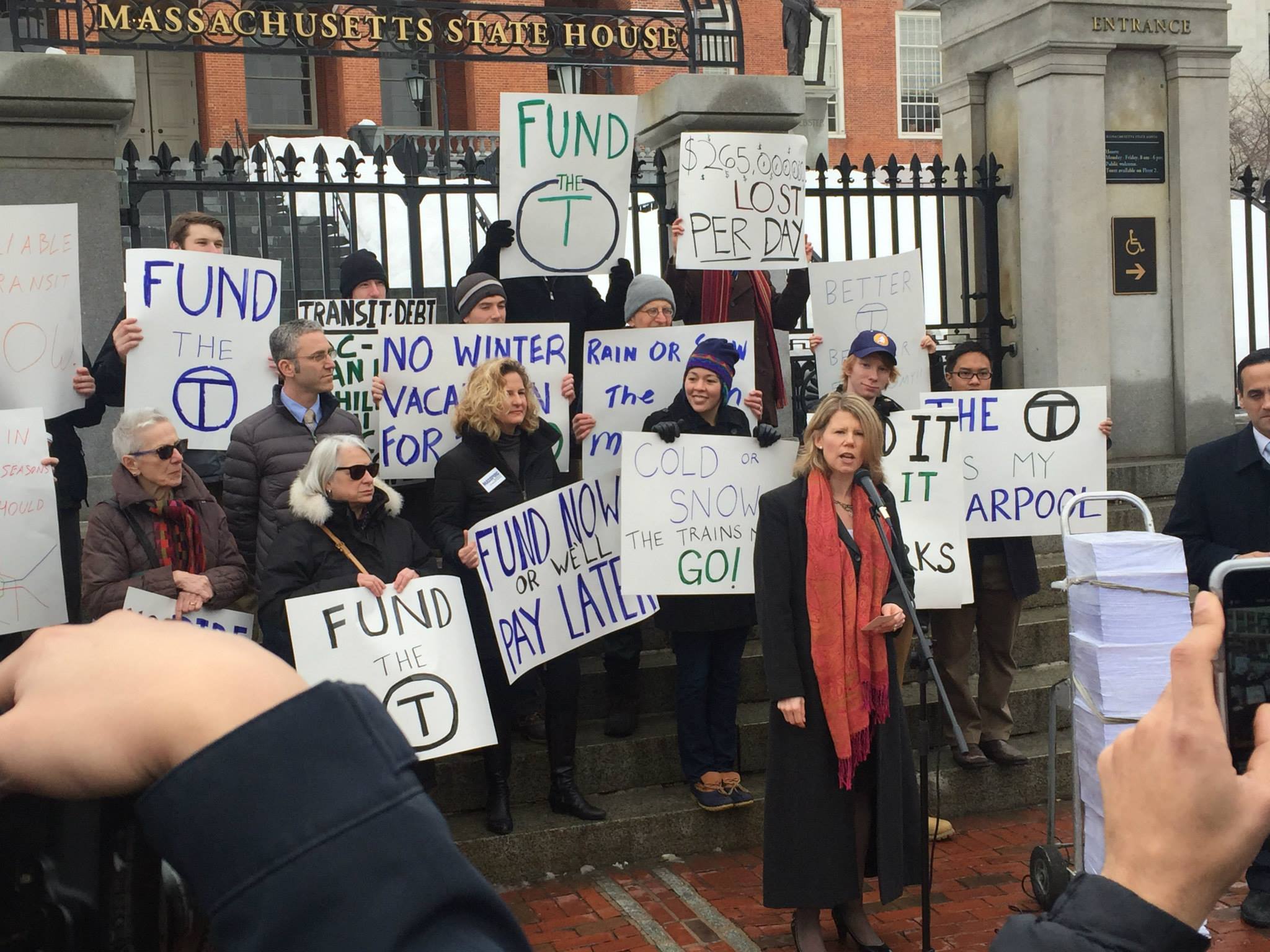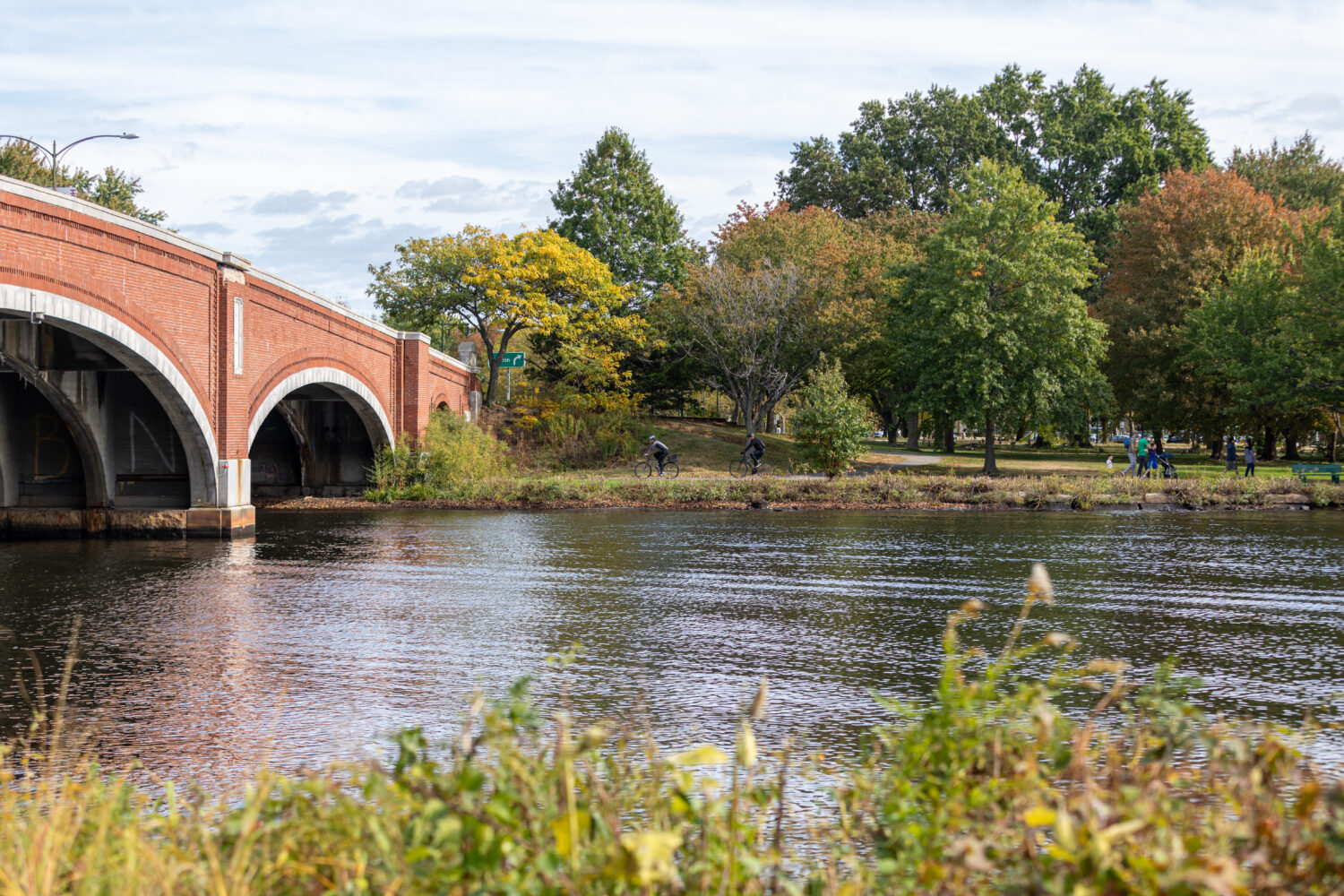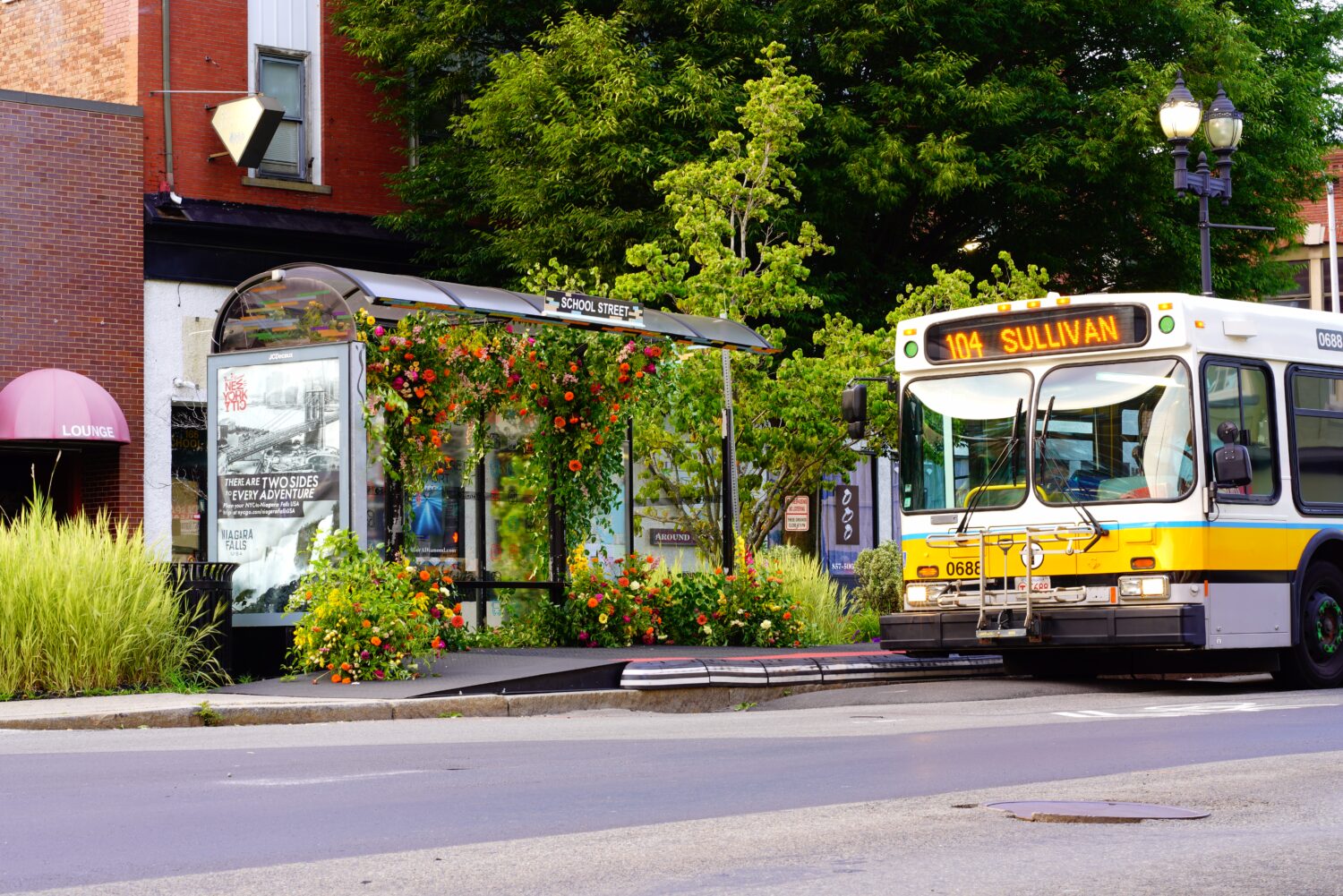In 2010, the Barr Foundation helped launch Transportation for Massachusetts (T4MA), a statewide coalition that has since become an influential voice in efforts to advance a modern, statewide transportation network in Massachusetts. In May, T4MA announced that Kristina Egan, who has led T4MA as executive for over five years, and who has become a close colleague and friend to many of us, would be leaving the organization, following her appointment as executive director of the Greater Portland Council of Governments in Portland, Maine.
In Kristina’s final weeks in Boston, I had the chance to catch up with her and to invite her reflections on her years with T4MA, on the Coalition’s successes and challenges, and her advice for those continuing this work.The following is excerpted from our conversation.
MSR: In five years, T4MA has grown from an idea, to a meeting of a half dozen interested colleagues, to 58 organizations from across the state.Let’s think back to when T4MA first came together.What was the impetus for starting the coalition?
KE: There were a variety of groups within the state focusing on pieces of transportation work that had some interaction, but did not always coordinate efforts.These groups shared principles they were trying to promote, such as reducing greenhouse gases and expanding opportunity for all people through public transit and transit-oriented development.
MSR: I remember this time well because I was receiving multiple grant requests that were overlapping in scope.
KE: I believe it. Over time, I think it became clear to many of these organizations that there were big challenges to advancing their shared principles—many of which resided in the policy realm.They realized that to overcome these challenges and impact policy, they needed to more tightly band together.The Coalition provided a vehicle for the member organizations to focus on specific policies each could tackle, while working towards a shared long-term goal.
MSR: As you look back over your years with T4MA, what are you most proud of?
KE: When I think of big successes, I think that right now, the MBTA is buying red line and orange line cars. I don’t believe that would have happened without the revenue campaign we did in 2013, which raised about $600 million annually in new funding for transportation. This amount was far from our goal of $1 billion. But what the revenue campaign did was to get transportation on the agenda of policy discussions.That was a win we could build off of.And we did, focusing our efforts on raising even more revenue in the following years, and on ensuring that funds were directed to public transportation.In fact, we were able to redirect about $300 million of state money to MBTA bus purchases and repairs.
Another big win our advocacy contributed to was the creation of the Complete Streets Funding Program.I like the Smart Growth America definition of “Complete Streets”—they are streets for everyone. They are designed and operated to enable safe access for all users, including pedestrians, bicyclists, motorists, and transit riders of all ages and abilities. Complete Streets make it easy to cross the street, walk to shops, and bicycle to work.
This is an approach many other places are using to great results, including New York, which also measured the impacts on safety and economic vitality in its “Measuring the Street” report.

Massachusetts’ new program makes state money available for cities and towns that want to start designing their streets with these principles in mind.Since it launched this year, more than 200 communities have expressed interest in this program, which is almost two thirds of the cities and towns in Massachusetts.Clearly there is a demand for streets that work for everyone, not just people who drive, and this program is helping to satisfy that demand. Residents of the Commonwealth should have greater options for walking, biking, or public transit, and these wins are really moving us in that direction to improve how people get around the Commonwealth.
MSR: As you think back on these big wins, what worked well? What would you highlight for others engaged in similar work?
KE: The first critical piece of our campaign was research and analysis to really understand what the challenges were, and—this was critical—what people’s experiences were trying to get around our state. What were their frustrations? What were there hopes? And what were the opportunities? Once we had a handle on that, our campaign to spark and expand a new conversation depended on three pieces working in alignment.
First was communications and media work, drawing on a set of reports we did that helped people understand the scope of the transportation problem and pointed towards solutions.We worked to frame our campaigns in a way that resonated with Massachusetts residents and that got the media engaged and talking about the issues.The second piece was advocacy work to mobilize leaders—a.k.a., the “grass tops.” We engaged policy-makers and made sure they were informed about the issues and knew there were direct calls for change from leaders in communities across the state.At the same time, through outreach and organizing at the community level, our members worked to build grassroots demand and keeps the issues moving forward.Through the T4MA network, we were really able to mobilize people and get engagement at each of these levels—from residents in low-income communities to business leaders, all speaking out about how these issues impacted them.
MSR: You’re leaving the Coalition at a time when it’s very strong, and much of that is to your credit.But, there was a moment in T4MA’s history where the coalition almost disbanded.What turned it all around?
KE: The Coalition members were not used to working together day to day, and it took a while for them to gel.Sometimes when a group of passionate, intelligent people are in a room together and all want to be heard, it’s difficult for them to realize that the person next to them is saying the same thing, only using different words.Eventually, I think the members realized that if they just gave up a little of their individual fight, then they could conquer the bigger challenges that were standing in the way.The Coalition could aim higher than any of the single organizations could, and achieve a significant goal, as long as they were willing to focus on a common agenda.
MSR: The part you’re leaving out is your abundant skills in diplomacy and negotiation that provided a level of leadership the Coalition so desperately needed.
KE: Thank you.
MSR: Thank you for saying yes to the invitation to lead T4MA over five years ago! Since then, what’s the most significant shift in thinking about transportation that you’ve seen?
KE: When I started this work, many advocates saw transportation issues as “roads verses transit.” That frame has really faded away.Part of that is because the lines between modes have blurred—there are now bikes with electric motors, shared cars in carpool lanes, “pop-up” mass transit like Bridj.With more and more choices for how people move around, there is a growing sense that we all have a stake in the whole system working well.
MSR: Given that there is clearly so much more to do, what makes you most hopeful?
KE: There are new technologies and mobility models with the potential to move us forward rapidly and in a sustainable direction. Consumer attitudes are changing—more people are thinking about their cars as a burden. There is also an increased awareness that something in transportation needs to change.Traffic congestion is reaching intolerable levels and reliability of public transportation is not what it should be. Polls are also showing that it is very clear to Massachusetts residents how important high-quality public transit is in people’s lives—including for people who choose to drive. Because when it doesn’t work, or work well enough, more people end up driving.
These things give me hope for a sustainable, 21st-century transportation system.
MSR: What advice do you have for those who will be carrying this work forward?
KE: The field is changing so rapidly that transportation organizations and advocates should commit to being in a learning space. Don’t focus so narrowly on your effort that it causes short sightedness.Stay abreast of all the changes happening around you and consider how they can help achieve your goal of a climate-friendly transportation system.
MSR: Thank you, Kristina—for speaking with me today and for all you’ve done over the last five years with T4MA. You have truly been a transportation champion. We will miss you greatly. And we will watch with great interest and expectation your next act at the helm of the Greater Portland Council of Governments.
KE: Thank you. It has been a privilege to do this work with such talented, committed partners. I’ll be watching what comes next for Massachusetts with interest too.




